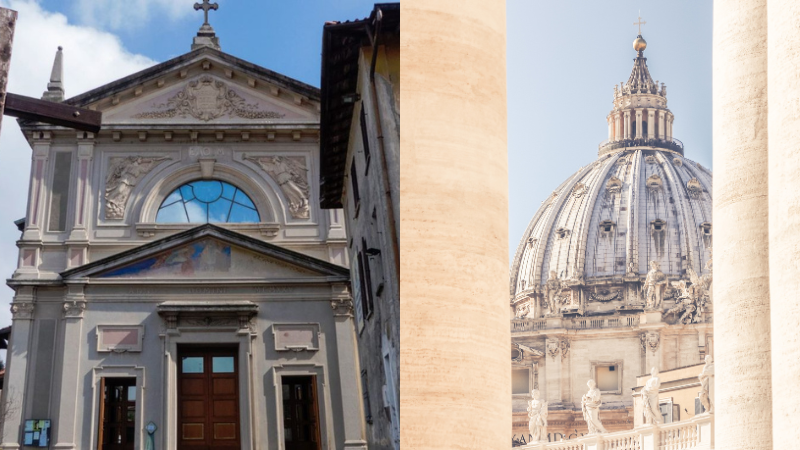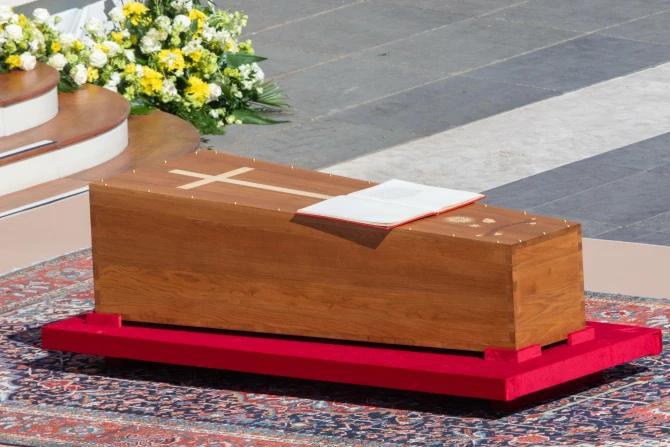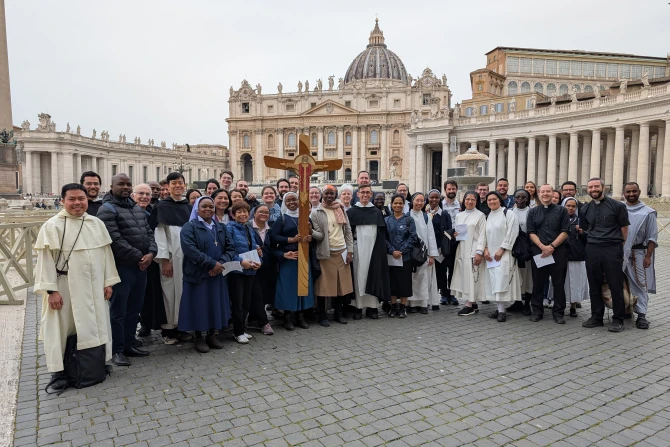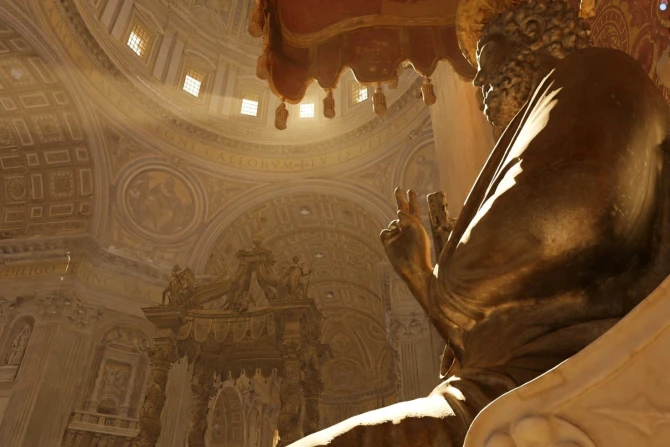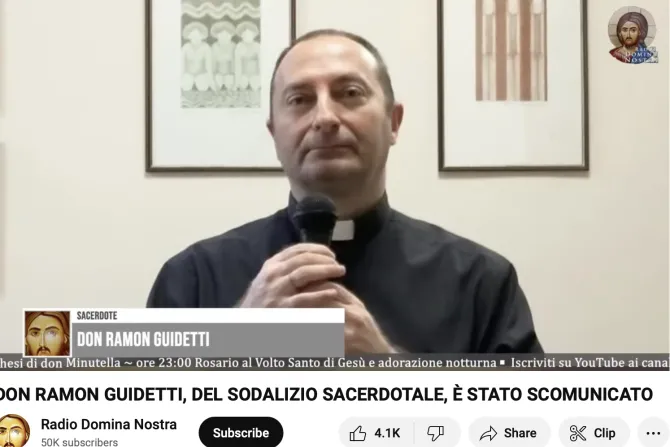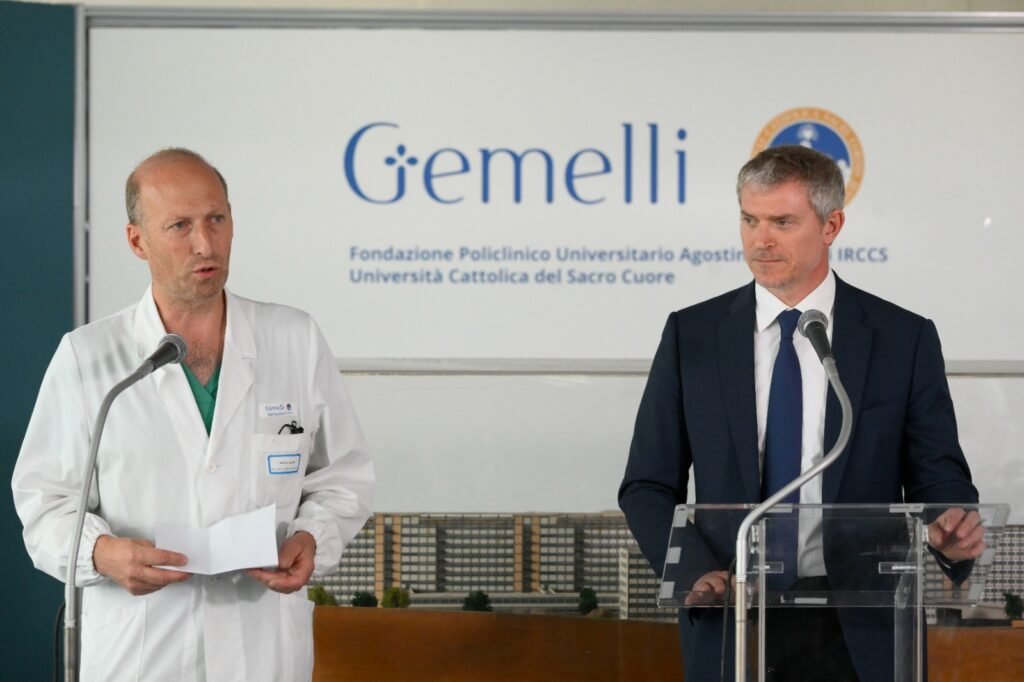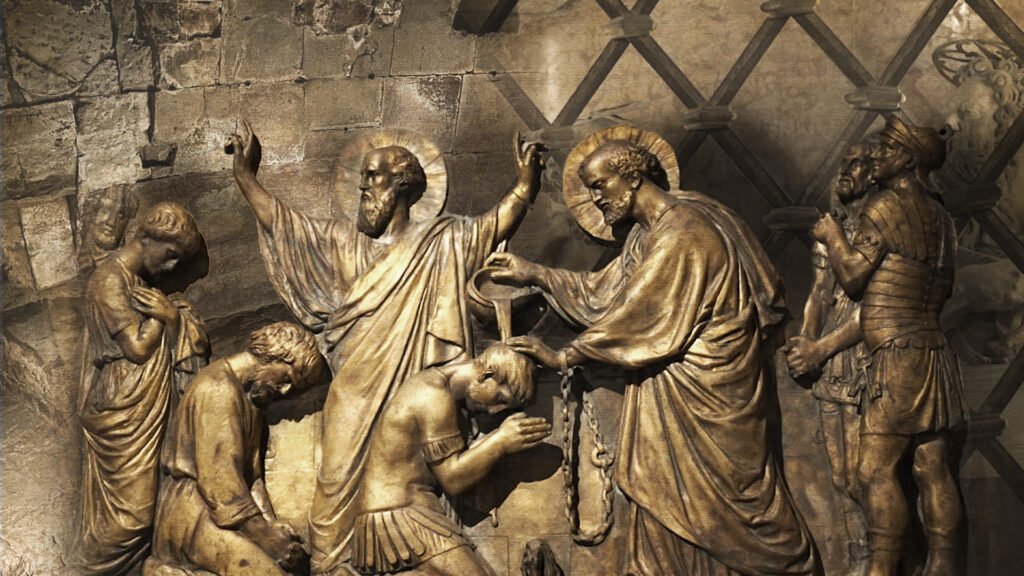The Vatican on July 24 approved the “spiritual experience” connected to the Sanctuary of Maccio located in Italy, making it the fifth public announcement of the Dicastery for the Doctrine of the Faith (DDF) since the office published its norms for the discernment of “alleged supernatural phenomena” on May 17.
The DDF recognized the “action of the Holy Spirit” in the mystical experiences and spiritual writings of Italian father and music teacher Gioacchino Genovese, which highlight the centrality of the Holy Trinity as the “source of mercy.”
In 2000, Genovese reportedly had mystical experiences during times of prayer in which he perceived the love of the Holy Trinity through the merciful gaze of Jesus Christ. Initially keeping his intellection visions to himself, he later began to open up about his prayer life with others. Devotion among Catholics around his “intellectual visions” began to spread throughout the Diocese of Como.
“The Church is called to rediscover more and more in the gestures of Christ that infinite mercy of the triune God, who in the writings of Mr. Genovese is called by the name ‘Trinity Mercy,’” reads the letter signed by DDF prefect Cardinal Víctor Manuel Fernández.
“This is the center of all the messages because, ultimately, it is the center of revelation: ‘And the heart of revelation is this: God, trinity of love, one God, gift that gives himself in our humanity, in Jesus walks with us.’”
Fernández granted the sanctuary a “nulla osta,” meaning the spiritual experiences connected to the sanctuary “do not contain theological or moral elements contrary to the doctrine of the Church.”
In the letter addressed to Cardinal Oscar Cantoni, bishop of Como, Fernández also outlined further considerations regarding specific “expressions” contained within Genovese’s writings that have the potential to cause confusion or be “interpreted in a way contrary to the Catholic faith.”
Before the Genovese’s texts can be published and further disseminated, they must first be granted a “nihil obstat” (“no objection”) by the Holy See.
Since 2005, Genovese’s writings have inspired local Catholic faithful to pray at the Sanctuary of Maccio, located in the Diocese of Como, and contemplate the Church’s teachings on the Trinitarian God, whose mercy is made manifest through the incarnation, passion, death, and resurrection of Jesus Christ.
Citing the words and works of both St. John Paul II and Pope Francis on the theological and spiritual significance of mercy for the Church, the DDF stated: “Mr. Genovese’s spiritual experience is in line with the rediscovery of the centrality of the Most Holy Trinity for the faith and Christian life that occurred in the last century.
St. John Paul II, also known as the “mercy pope,” wrote his second encyclical letter titled Dives in Misericordia (Rich in Mercy) in 1980. He also instituted Divine Mercy Sunday, celebrated on the second Sunday of Easter, and canonized St. Faustina Kowalska on the same day on April 30, 2000.
In 2015, Pope Francis opened the extraordinary Jubilee of Mercy to “point out the path that we [in the life of the Church] are called to follow in the future.” In Misericordiae Vultus, the papal bull announcing the holy year, the Holy Father wrote: “With our eyes fixed on Jesus and his merciful gaze, we experience the love of the Most Holy Trinity. The mission Jesus received from the Father was that of revealing the mystery of divine love in its fullness.”
To date, the Vatican has made public declarations on five cases of supernatural phenomena that have taken place in different countries in Europe. Three of the five cases, which have taken place in Italy — including the shrine dedicated to “Our Lady of the Rock” in a village in Calabria — have been given the seal of approval by the Dicastery for the Doctrine of the Faith.
This article was originally published on Catholic News Agency.

